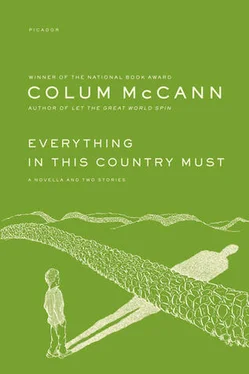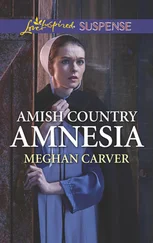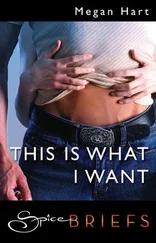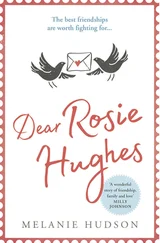I don’t like it any more than you do. But others are dying too. Innocent ones.
He didn’t even have a proper trial.
Neither did the ones who died, she said.
The boy thought about this and then said: Why can’t we go home, Mammy?
I thought you liked it here now? With the kayaking and all? I thought you were getting settled in?
The waves pounded on the cliff face below them and the boy plucked at a spear of grass, put it between his teeth. He watched as a shooting star fishtailed in the sky above him.
Why can’t we go home? he asked again.
She sighed: Because I don’t want to be there to see it.
Well, I do.
I don’t want for you to see it, love.
I’m not a child, he said.
They sat in silence until he asked her if his father had ever done anything bad in his life and she said: No, never, and he knew by the way she said it that she was telling the truth.
* * *
ONE SPECIFIC MEMORY of his father came back to him: The boy was just five years old. Some tinkers came to the door to sell a fridge. His father was between jobs, they had little money, and there was no fridge in the house. Milk went sour, leftovers grew mold. His parents had often talked about buying a fridge and this one was being sold for next to nothing, twenty pounds. The boy was excited at the thought of cold milk.
His father stepped outside the door to examine the fridge, but when he found the scorch marks on the side paneling he simply turned and said No, and closed the door on the travellers. Bomb-damaged, said his father to his mother.

* * *
IT’S OVER, she shouted as she ran up the hillside, it’s over, it’s over, it’s over. He threw his notebook in the air and ran out from the caravan. She was thumping the air with her fist. Her cheeks were flushed with color. He hugged her and she spun him around and each of them fell to the ground and kicked their shoes off and sent them cartwheeling through the air. Breathless they lay there in the long grass and she said that the prisoners had released a statement, all was agreed, there were only a couple of formalities left. She stood up and danced on the orange gas cylinder at the back of the caravan. I knew it would finish! she shouted. Thank you, God!
He took her hand and she jumped down from the cylinder and they ran through the grass to the cliffs, where she was panting so hard that she swore she would give up cigarettes forever. They danced way above the sea, twirling and high-stepping. Later, for dinner, she cooked up a huge meal of sausages, rashers, tomato, eggs, and fried bread and they had red lemonade floats for dessert. The ice cream left a rim of white mustache above her lip and he showed it to her in the mirror and she cackled with joy. She broke out a bottle of wine and even allowed him one puff at the very end of her cigarette. He pretended it made him very dizzy and he staggered around the caravan.
Watch this! he roared. Watch this! They turned the radio up very loud and they stepped outside, took hold of each other’s elbows, and began to spin, and for a moment everything seemed minutely perfect.
* * *
LATER THAT NIGHT — after the radio announced another breakdown in the talks — he unzipped his sleeping bag and shimmied his way down to the end of the bed, making sure he didn’t expose himself through the gap in his pajamas. At the foot of the bed he pulled on his father’s white shirt and, over that, a fisherman’s sweater to keep himself warm.
He filled a saucepan with water, grabbed a loaf of bread from the rack above the stove, and went and sat at the kitchen table. Slowly he tore the crusts from all the slices and arranged them like a fence around the table. He placed the radio in the center of the crusts.
His mother was watching him from across the caravan. Her eyes were red from crying once again.
The only light was that of the moon, which had leaped to the lintel of the window.
He wet the bread and then squeezed it into the approximation of a cylinder. He massaged it gently with his fingers and then pressed tight where the neck should be. The bread gave nicely. It seemed to accept the whim of his hands.
He fanned his fingers down the length of the cylinder and dented the bread with his knife to give it a ribbed appearance at its foot. The blade pressed into the soft bread. He straightened out the bottom so it would stand on its own on the table. Bending down to eye level with the piece, he gave it a crown and a set of eyes that looked out at him crookedly. He smoothed out the remaining thumbprints and then took a pen and tried to fill the eyes in with ink, but the bread wouldn’t take the ink. He thought for a moment and went to the cupboard and found a tin of cocoa. Mixing the cocoa with water, he made a paste.
He put the tine of a fork into the paste and dropped a tiny amount where the eye should be. The brown dye seeped into the bread. The eye looked to him like it was bruised from a fight.
What’s that?
It’s the queen.
She sat up in her sleeping bag: It looks real.
He put it in the palm of his hand and rolled it along his fingertips. The piece had taken him an hour to make and there was a marvelous precision to it, most of all he liked the ribbed bottom. He sat at the table, thinking of his uncle, wondering if it was a suicide and if that was a mortal sin. Yet allowing a man to die would be a mortal sin too, surely? His head spun and his throat felt dry. He continued to roll the chess piece from finger to finger. Under his breath he cursed his uncle’s stupidity and wished he would hurry up and eat something, and then hated himself for the thought of these things.
His mother was still watching him intently, so he stabbed the queen in the eyes with the prong of the fork and when her eyes were hollowed out began destroying the crown. Then he held the chess piece high in the air and licked his lips and then, with great theater, he ate it with a smile and a sort of savagery.
That’s what I think of the Queen, he said.
He chewed while staring at his mother, then picked the bread from between his teeth. It had tasted soggy and awful. His mother propped herself up with her head on her hand and her neck seemed to loll sideways.
Don’t be so angry, please, she said.
He went to the bin and spit the last of the bread out: I’ll be angry all I want to; it’s my life!
Please don’t.
They’re allowing him to die.
Maybe he’s choosing to die, love.
It’s the same thing.
Come here and get some sleep.
I don’t want to sleep.
The bogeyman will get you.
Mammy, he said, I’m thirteen. Bogeyman. Christ!
She fidgeted with the zip on her sleeping bag and she put her head to her pillow and watched him as he spread his hand wide on the table and began to stab the empty spaces between his fingers. The knife made a high sound against the Formica.
Don’t ruin the table.
I won’t.
Why don’t you put the knife away?
He snapped the blade shut.
Fuck the Queen! he shouted suddenly, and he startled himself with the curse. Fuck Maggie Thatcher! Fuck them all! Fucking cunts! Fuck every soldier that ever walked!
There was a silence unlike any he’d heard before.
His mother sat upright in the bed, swung her feet out from the sleeping bag and walked across to the other side of the caravan. She didn’t look at him as she passed, just went and knelt down at her own bed. The backs of her knees creased. Her head bowed.
Give us this day our daily bread, he said viciously.
You go to sleep, young man. I’ll deal with you tomorrow. You’ll not be going anywhere for a while, not kayaking nor nothing else.
Читать дальше













